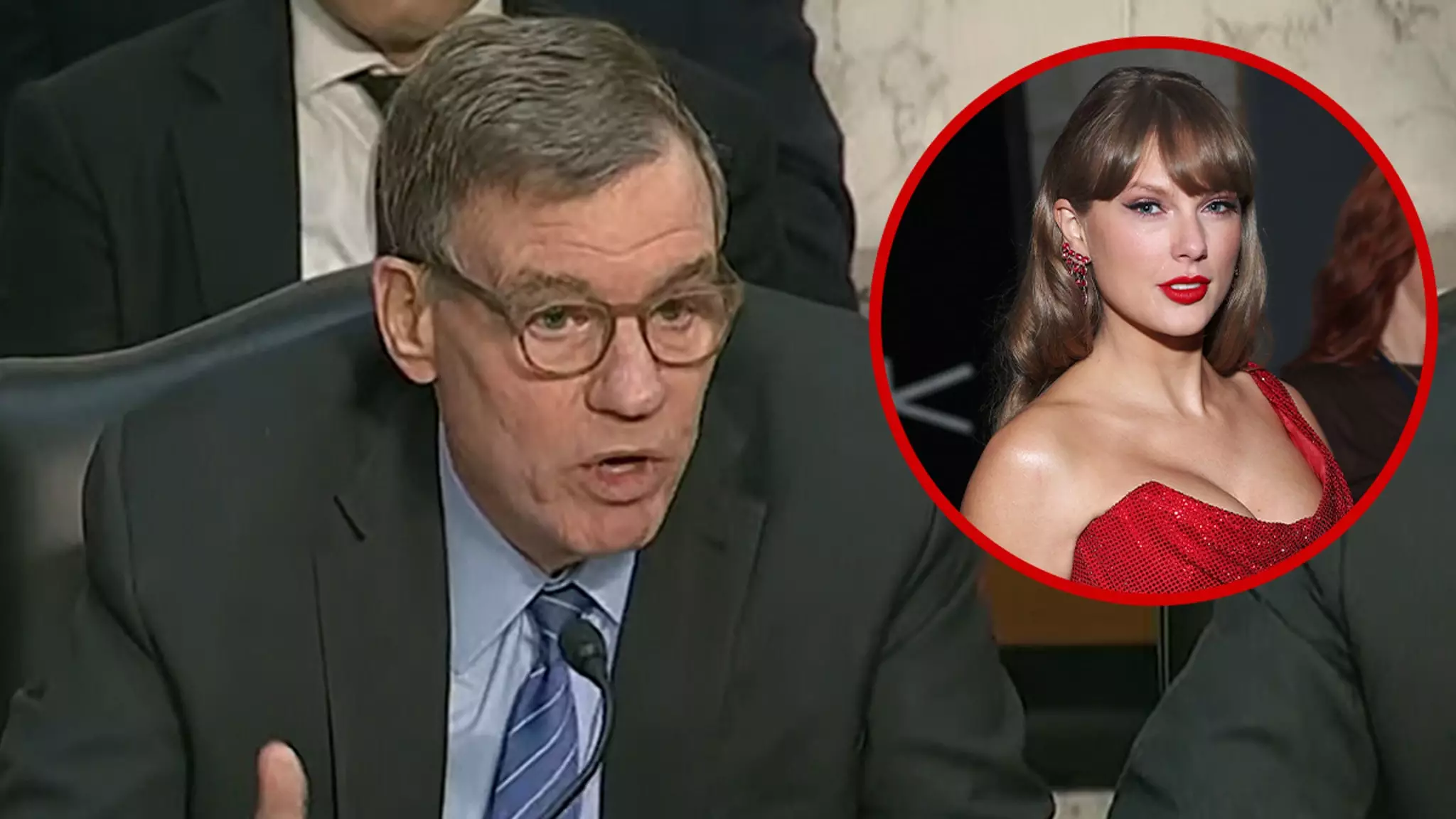In an unusual intersection of pop culture and high-level politics, the world-famous singer Taylor Swift found herself referenced during a Senate intelligence hearing on national security. This unexpected mention occurred amid revelations of significant lapses in the protocols governing the confidentiality of governmental communications. The occurrence reveals not just the fragility of international alliances but also underscores how even celebrities can become focal points in discussions that dictate global security strategies.
Senator Mark Warner of Virginia highlighted the importance of collaboration between the United States and its allies when he brought up a thwarted terrorist attack aimed at a Swift concert in Austria last summer. This is a stark reminder that the threats to national security often take strange forms — even those involving pop icons. The attempt on Swift’s life, fortunately averted due to international cooperation, serves as a metaphor for the broader dilemmas posed by declining trust and collaboration among allies.
From Celebrity to Security Risks
The plot against Swift, while seemingly far-fetched at first glance, epitomizes a complicated reality where global ceremonies of entertainment can harbor lurid dangers. The rapid response from Austrian authorities, which involved dedicated intelligence sharing with U.S. counterparts, is indicative of how crucial these alliances are in thwarting potential disasters. The fact that the plot could have endangered hundreds of lives further emphasizes how interconnected our global communities have become, bending the lines between entertainment and serious concern.
Triangulating the complexities of international intelligence when soft targets like concerts come into play shows just how high the stakes really are. Swift, known for her mass appeal and public accessibility, inadvertently became a symbol of the risks posed to soft targets by international terror groups. The very fabric of popular culture is now a battleground for understanding threats that transcend national borders.
A Wake-Up Call for Intelligence Practices
Questions arose during the Senate briefing regarding the integrity of classified communications, especially after it was revealed that a journalist had been inadvertently included in a secure Signal chat encompassing high-ranking defense officials. This catastrophic lapse underlines a disconcerting trend in how sensitive information is managed — and it raises critical questions about technological safeguards in an era where information is easily disseminated.
The discussions shared on this platform were not only insensitive but could have led to grave security breaches. The fiasco described in The Atlantic magazine highlighted how classified military strategies were carelessly navigated, making the case for tighter regulations and clearer channels of communication within intelligence circles.
Moreover, the alarming rhetoric utilized by some officials during these chats raises further concern about the nature of dialogue between U.S. representatives and their counterparts. Diminishing cooperation through contemptuous language presents a dangerous precedent. Such interactions fuel discord, risking vital operational effectiveness by alienating allies crucial for maintaining shared security interests.
Pop Culture’s Role in National Discourse
The integration of Taylor Swift into the discussion about national security responsibilities is emblematic of how pop culture must contend with burgeoning tensions on a global scale. Swift’s experiences represent the reality for many artists today; the cruelties of fame are now partnered with responsibilities of safety and awareness that were once exclusively the domain of political leaders and security experts.
This peculiar overlap invites contemplation on the role of culture in shaping political narratives. Celebrity involvement can spur heightened interest in issues often grappled with behind closed doors, bringing them into the limelight in a way that demands conversation. The intersection between entertainment and politics necessitates nuanced dialogue and deeper understanding, not only for fans of Swift but also for citizens reacting to the larger implications of national security.
As evidenced by the unfolding events and the involvement of high-profile personalities like Swift, the boundary between the realm of popular music and the world of international security continues to blur. The dynamics of how we communicate, evaluate threats, and collaborate across borders are changing in complex ways driven by these cultural icons. In an era rife with threats and vulnerabilities, perhaps all eyes should remain on the pages of pop culture even as they meet the realm of global governance.

